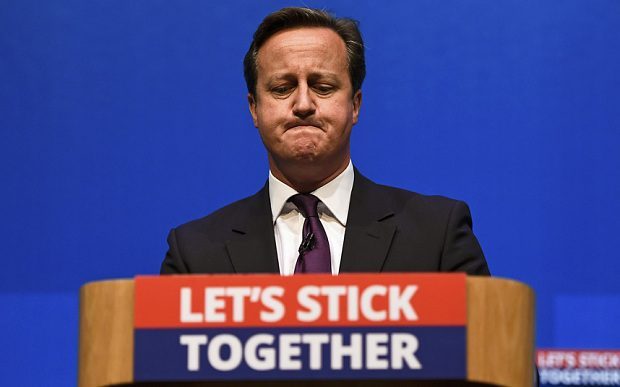The United Kingdom wants out.
In a historic referendum long in the making, Brits voted on June 23rd to leave the European Union, unleashing a storm of uncertainty on the continent and around the world as the United Kingdom charts a new course in European politics.
Although recent polls showed the “remain” side with a slight edge, in the end, the “leave” campaign successfully convinced Brits in a 52% to 48% vote that the United Kingdom was better off outside the European Union. Advocates of Brexit (a portmanteau of “British” and “exit”) argued that it was essential in order to protect British sovereignty over its trade agreements, laws, national budget, and immigration policy against a supranational state they argued may soon have a border with Syria and Iraq, if Turkey gains membership.
Voters dismissed many of their leaders’ warnings that Brexit would mean dire economic consequences and a reduced stature for the United Kingdom on the world stage. Prime Minister David Cameron, who was an outspoken supporter for remaining in the EU, announced Friday that it would not be right for him to preside over an exit he did not support and that he will step down by October. While the referendum is not legally binding, it’s unlikely that the government will defy the democratic will of millions of Brits and refuse to carry out the mandate.
Thursday’s vote was largely split along national lines and may signal more political changes ahead for the United Kingdom, which suddenly seems a lot less “united.” Although Scotland and Northern Ireland voted by large margins in favor of staying in the European Union, England and Wales delivered enough “leave” votes to push the country in favor of Brexit. The result will likely reignite calls for Scottish Independence, which was defeated in a September 2014 referendum in which voters decided to stick it out with the United Kingdom in order to remain in the EU, among other reasons. The Irish republican political party Sinn Fein has also suggested that the vote bolsters the case for a united Ireland.
The referendum reflects a wave of populist anger that is sweeping through Western democracies and upending establishment regimes. The past few years have seen right-wing governments installed in places like Poland and Hungary, while national movements everywhere are on the rise – especially in response to the European Union’s inability to respond to a growing migrant crisis as thousands of refugees have crossed the Mediterranean in hopes of building a new life in Europe. Similar fears about the United States being “overwhelmed” by immigrants have also bolstered Donald Trump’s presidential campaign, which calls for constructing a wall on the border with Mexico and banning Muslims from entering the country. The presumptive Republican nominee praised the result during his visit to Scotland on Friday, calling it a “great thing” that Brits “voted to reassert control over their own politics, borders and economy.”
While Nigel Farage, the leader of the pro-Brexit UK Independence Party, and others celebrated the result, European leaders expressed dismay at the news. German Chancellor Angela Merkel was disappointed yet called for European unity and a rejection of the “swift and easy answers to the British referendum that will only further divide Europe.” More vulnerable players in the European system, such as Poland, were more direct: “One must do everything to prevent other countries from leaving,” said President Andzej Duda. Stocks tumbled everywhere as uncertainty spread around the globe.
And everywhere, people are asking questions without many clear-cut answers. Who will succeed Cameron? What will happen to the border with Ireland? Will Scotland and Northern Ireland stay? How about the almost one million Poles who have settled in the UK? Or the banks that have their European headquarters in London?
And what comes next? The 52% to 48% vote represents the first time a country has left the bloc (although Greenland, a territory of Denmark, withdrew from the EU in 1985). There’s no envelope of instructions labeled “read in case of Brexit,” so the process will take a great deal of improvisation on both sides. London and Brussels will have to negotiate their messy divorce in discussions that may take several years to complete and will span everything from trade agreements to the future of the Schengen Zone’s open borders. As for the decision’s consequences, only time will tell whether the United Kingdom will regain its footing outside of the European Union or whether the result will bring about lasting economic recession and political disunity.
European integration emerged after World War II as an antidote to the nationalism that had dragged the continent into two devastating global conflicts. With Brexit, it seems like this project may be coming to an end. Everything is suddenly on the table. It’s possible that some countries will try to follow Britain’s lead and hold referendums of their own, and if voters elect right-wing governments at the polls in upcoming years, like France’s National Front led by Marine Le Pen, calls for ditching the EU will only grow. If that happens, some say that the dissolution of the bloc itself is no longer out of the question – even if others aren’t willing to write it off just yet.
Britain’s seismic vote has unleashed new forces in the European political arena, transforming mounting Euroscepticism into a sudden rejection of the status quo. While it’s difficult to see what the region will look like two or three years from now, one thing is clear: change is coming.

